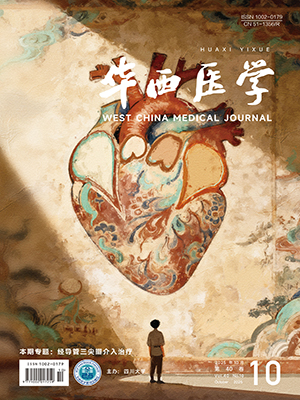| 1. |
刁明芳, 孙建军. 听觉过敏. 听力学及言语疾病杂志, 2009, 17(6): 603-605.
|
| 2. |
蒋涛, 李刚, 赖琳玲. 恐声症: 鉴别和患病率. 中国听力语言康复科学杂志, 2008, 6(6): 56-58.
|
| 3. |
刘蓬, 李明, 王洪田, 等. 原发性耳鸣刍议. 听力学及言语疾病杂志, 2010, 18(2): 99-101.
|
| 4. |
Khalfa S, Dubal S, Veuillet E, et al. Psychometric normalization of a hyperacusis questionnaire. ORL, 2002, 64(6): 436-442.
|
| 5. |
刘蓬, 徐桂丽, 李明, 等. 耳鸣评价量表的信度与效度研究. 中华耳鼻咽喉头颈外科杂志, 2012, 47(9): 716-719.
|
| 6. |
祝晓宇, 张剑宁, 李明. 听觉耐受下降与耳鸣. 临床耳鼻咽喉头颈外科杂志, 2012, 26(19): 909-912.
|
| 7. |
Perlman HB. Hyperacusis. Ann Otol Rhinol Laryngol, 1938, 47(4): 947-953.
|
| 8. |
Anari M, Axelsson A, Eliasson A, et al. Hypersensivity to sound: questionnaire data, audiometry and classification. Scand Audiol, 1999, 28(4): 219-230.
|
| 9. |
Jastreboff PJ, Jastrebof MM. Decreased sound tolerance and tinnitus retraining therapy R3. Aust New Zeal J Audiol, 2002, 24(2): 74-84.
|
| 10. |
辛鑫, 卢伟, 孙淑萍. 听觉过敏患者临床特征初步分析. 听力学及言语疾病杂志, 2014, 22(4): 356-359.
|
| 11. |
Dauman RF, Bouscau F. Assessment and amelioration of hyperacusis in tinnitus patients. Acta Otolaryngol, 2005, 125(5): 503-509.
|
| 12. |
Sood SK, Coles RRA. Hyperacusis and phonophobia in tinnitus patients. Br J Audiol, 1998, 22(1): 228-236.
|
| 13. |
Hazell JW, Jastreboff PJ. A neurophysiological approach to tinnitus: clinical implications. Br J Audiol, 1993, 27(1): 7-17.
|
| 14. |
Sahley TL, Nodar RH. A biochemical model of peripheral tinnitus. Hearing Res, 2001, 152(1/2): 43-54.
|
| 15. |
Gu JW, Halpin CF, Nam EC, et al. Tinnitus, diminished sound-level tolerance, and elevated auditory activity in humans with clinically normal hearing sensitivity. J Neurophysiol, 2010, 104(6): 3361-3370.
|




